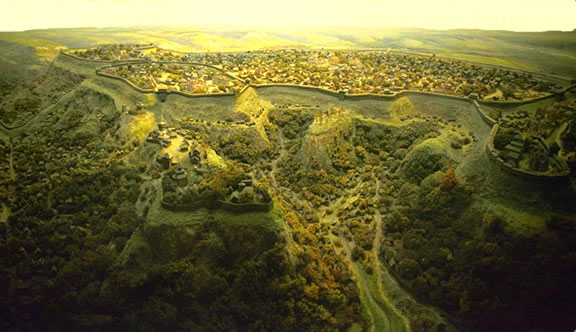Wealth vs. Money
Resisting the Forces of Privatization and Commodification
by Robert C. Koehler
“There is no patent. Could you patent the sun?â€
 The words are those of Jonas Salk, developer of the polio vaccine, speaking to Edward R. Murrow in 1955, as quoted recently in an essay by Paul Buchheit. What was he thinking? Six decades later, the words have such a counter-resonance with prevailing thought. They exude an old-fashioned humility and innocence, like . . . striking it rich isn’t necessarily the ultimate point of life?
The words are those of Jonas Salk, developer of the polio vaccine, speaking to Edward R. Murrow in 1955, as quoted recently in an essay by Paul Buchheit. What was he thinking? Six decades later, the words have such a counter-resonance with prevailing thought. They exude an old-fashioned humility and innocence, like . . . striking it rich isn’t necessarily the ultimate point of life?
I read these words and sense so much spilled wisdom in them, so much wasted hope. The world we’ve created is governed these days by two unquestioned principles: commodify and dominate. And it’s chewing up the resources that used to belong to every occupant of the planet.
“Eighty people hold the same amount of wealth as the world’s 3.6 billion poorest people, according to an analysis just released from Oxfam,â€Â Mona Chalabi wrote in January at FiveThirtyEight.com. “The report from the global anti-poverty organization finds that since 2009, the wealth of those 80 richest has doubled in nominal terms — while the wealth of the poorest 50 percent of the world’s population has fallen.†(more…)
 and through each of our relations and actions.
and through each of our relations and actions. payments.â€
payments.â€ haired young people in white shirts, a subspecies of guards — stern-looking lads with bull’s napes, a subspecies of builders — lads from other towns. The old age people are rarely seen on the streets. I peer at the faces, hoping to recognize familiar ones. But no, no way, they are all long gone. The species, the environment have changed irrevocably. Sad, but true.
haired young people in white shirts, a subspecies of guards — stern-looking lads with bull’s napes, a subspecies of builders — lads from other towns. The old age people are rarely seen on the streets. I peer at the faces, hoping to recognize familiar ones. But no, no way, they are all long gone. The species, the environment have changed irrevocably. Sad, but true. the other side by the widening of an avenue, which would escalate traffic speeds on an already dangerous road.
the other side by the widening of an avenue, which would escalate traffic speeds on an already dangerous road. let’s not forget the lowly commons all around that enrich our lives. Things like sidewalks, playgrounds, community gardens, murals, neighborhood hangouts, and vacant lots. Especially vacant lots.
let’s not forget the lowly commons all around that enrich our lives. Things like sidewalks, playgrounds, community gardens, murals, neighborhood hangouts, and vacant lots. Especially vacant lots.
